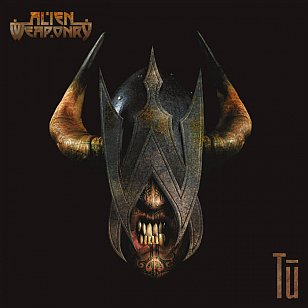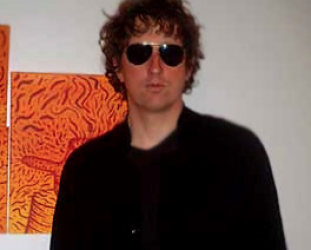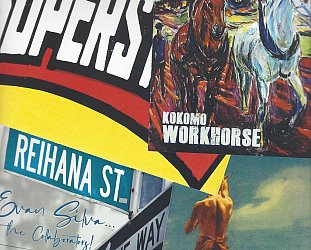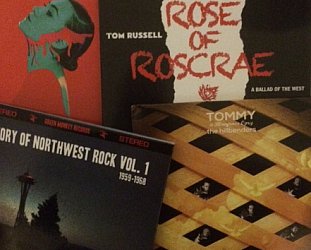Graham Reid | | 2 min read
Raupatu/Confiscated

Spotify is all very well but here is where it let's you down: With the vinyl album by this young (two members just 16), disciplined, experienced (they've been at it three years) metal outfit who frequently sing in te reo.
Spotify will only give you a compressed sound but the vinyl version comes at you widescreen and about two centimetres from the end of your nose. The tracks are produced by both Shihad's Tom Larkin and Simon Gooding, and sonically Tu is stunning.
The vinyl is also gloriously gatefold, the insert sleeve has all the lyrics in te reo with English translations and there is a seven inch single of two extra tracks (admittedly both are on Spotify but here you get that whiff of fresh vinyl).
It opens with taonga puoro and a korero about colonial troops arriving in 1864 and the band's great-great-great grandfather Te Aho Aho being among those in the opposing forces. It paves the way for the aggressive, muscular and almost militaristic metal which follows where the buzzsaw guitars and thrashing drums have all the firepower and visceral thump of battle and a challenging haka.
It is righteously angry and the messages pull no punches: on Holding My Breath we get the claustrophobia of oppression seen from the inside (and the music parallels it), and on the immensely powerful Raupatu/Confiscated some key phrases are in English so there can be no misinterpretation: “You take and take but you cannot take from who we are, you cannot take our mana, you cannot take our Maoritanga, you cannot take our people, you cannot take our whakapapa . . .”
While the first half is grounded in history and culture (warriors' moko on Kai Tangata) these songs also link together like a concept album (in a good way) as they move into the contemporary world with the furious Rage It Takes Over Again and a soundbite from Don Brash interviewed by Kim Hill (where he manages to be both superior and stupid simultaneously) before Whispers (about the lies of successive governments) with references to the seabed and foreshore protests, Maori Party founder Tariana Turia, activist Tame Iti, former Prime Minister John Key and the TPPA among others.
Then we are into a world where “flickering screens against glassy dead eyes has now become the norm . . . the media rules you . . . your life is a lie” (on PC Bro which opens with a warning about Facebook and social media from former Facebook president Sean Parker) and the confusion of the 21stcentury (Urutaa and Nobody Here).
Then after Te Ara (mostly an evocative instrumental about a voyage from Hawaiki) it all goes out with an ancient haka which celebrated the safe arrival of Ngati Ohomairangi in Aotearoa.
This is an album conceived as a powerful history lesson, political positioning, an arc from ancient to modern (and the ever-present past in the modern world) and it is delivered with barely contained anger and explosive music.
Tu is a rare album in the current musical landscape and Alien Weaponry -- who may look Pakeha but are Maori and fluent in te reo -- manage to pack more fury, political outrage and energy into one song than most local artists do over a lifetime.
It is uncompromising because it needs to be, and if the genre of fist-tight metal won't make this easy for many the sheer firepower of it makes the ideal idiom for these messages . . . and a record as important as Herbs' Whats' Be Happen and Upper Hutt Posse's E Tu.
A landmark album and a stake driven into the ground.







post a comment